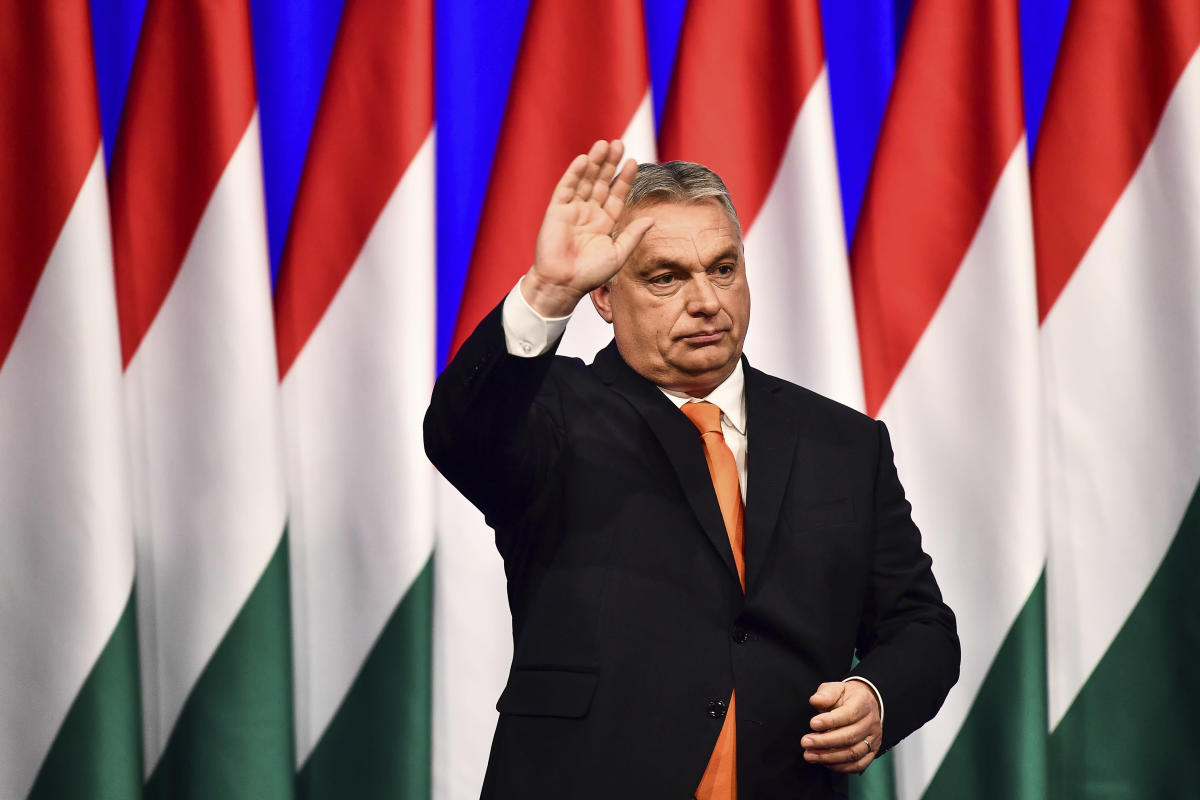PRAGUE (AP) – Russia’s invasion of Ukraine has shocked the former Soviet satellite states of central and eastern Europe and has been strongly condemned by even the most pro-Kremlin politicians in the region.
To some of the countries that fled the Soviet bloc after a series of anti-communist revolutions more than 30 years ago, images of tanks and troops trying to punish a nation trying to pursue its own independent course is painfully familiar.
Two hitherto major pro-Russian voices in the European Union, Czech President Milos Zeman and Hungarian Prime Minister Viktor Orban, went astray in criticizing Moscow’s most aggressive crackdown since the Soviet invasion of Afghanistan in 1979.
Their countries experienced similar atrocities: the Czech Republic, as part of Czechoslovakia, in 1968 and Hungary in 1956.
Zeman called Thursday’s invasion “an unprovoked act of aggression.”
“Russia has committed a crime against peace,” he said in a speech to the nation.
Zeman had previously made headlines by calling Russia’s 2014 annexation of Ukraine’s Crimean peninsula “a fait accompli.”
Many in the Czech Republic taunted Zeman as a “servant of the Kremlin” after he sided with Russia and cast doubt on his own security and intelligence agencies’ findings over the alleged participation of Russian spies in a massive munitions explosion in 2014 .
Until a few days ago, Zeman insisted that the Russians should not attack Ukraine because “it would not be fools to launch an operation that would be more harmful than beneficial to them”.
“I admit I was wrong,” he said on Thursday.
Zeman has called for tough sanctions against Russia, including scrapping the SWIFT financial system that shifts money from bank to bank around the world.
“It is necessary to isolate a madman and defend us not only with words but also with deeds,” he said.
Czech Prime Minister Petr Fiala also expressed his full support for the strongest possible sanctions for what he called “an absolutely unjustified act of aggression against a sovereign state”.
Prague ordered the closure of two Russian consulates in the Czech Republic and stopped accepting visa applications from Russian citizens.
Pavel Rychetsky, the chief justice of the Constitutional Court, the country’s highest judicial authority, proposed issuing a European arrest warrant against Russian President Vladimir Putin. He said Putin should be tried before the International Criminal Court for “an unprecedented unleashing of war on the European continent for the first time since World War II.”
In Hungary, senior officials had avoided direct condemnation of Russia’s actions for weeks. Under Orban, the country has maintained close ties to Putin, a concern for many of Hungary’s western partners.
Hungary has historically had a deep distrust of Moscow, which ordered the brutal suppression of an anti-Soviet insurgency in 1956. But Orban has in recent years pursued a diplomatic and economic strategy he calls “Eastern Opening” that promotes ties with countries to the east, and in his frequent battles with the EU, he has called the bloc of 27 an oppressive imperial power, akin to Hungary’s former Soviet occupiers.
But on Thursday, Orban was clear in his condemnation of the Kremlin.
“Russia attacked Ukraine with military force this morning,” Orban said in a video posted on Facebook. “Together with our allies from the European Union and NATO, we condemn Russia’s military action.”
“Hungary’s position is clear: we stand behind Ukraine, we stand behind Ukraine’s territorial integrity and sovereignty,” said its foreign minister Peter Szijijarto.
Bulgaria, Moscow’s closest ally during the Cold War, followed suit.
“It is absolutely intolerable that in the 21st century, strategic bombers and missiles fly in Europe, air and naval strikes on a sovereign state,” said President Rumen Radev.
Romania was also steadfast towards its Western partners.
“Today’s cynical invasion has left the Russian Federation the architect of the worst security crisis since World War II,” the ruling coalition leaders said.
Neighboring Moldova, a former Soviet republic and one of the few former communist Eastern European countries not to join NATO so far, echoed these views.
Moldovan President Maia Sandu stressed that the Russian attacks were carried out “in violation of international standards”, adding that the international community “unilaterally condemns these military actions”.
†
Justin Spike in Budapest, Hungary, Veselin Toskov in Sofia, Bulgaria and Stephen McGrath in Bucharest, Romania contributed.
†
Follow AP’s coverage of the crisis in Ukraine at https://apnews.com/hub/russia-ukraine

